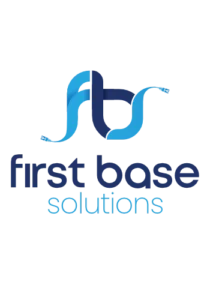Understanding EDI and utilising it for your benefit.
What is EDI?
Electronic Data Interchange is the structured transmission of data between organizations electronically. It is used to transfer documents or data from one computer system to another, removing the need for paper documents to be sent between businesses. The essence of EDI is the formalization of electronic data to enable seamless and efficient business to business exchanges.
In terms of daily business to business communication and processes, Electronic Data Interchange stands out as a brilliant technology and will be used for many many years to come.

EDI history
Electronic Data Interchange has been a significant component of business transactions since the 1960s. Despite its long history, It remains incredibly relevant in today’s business landscape. Many companies rely on EDI for essential communication and transactions between companies they deal with.
EDI has changed a lot over the years and now integrates seamlessly with contemporary systems, proving its value by drastically enhancing operational efficiency and helping to maintain strong business to business relationships.
The Mechanics of EDI
EDI involves the use of standardized message formats and protocols. When one business sends an EDI message, its system formats the message according to a specified standard. Once received, the recipient’s Electronic Data Interchange system processes and translates the message into a format suitable for their internal systems.
Key Components of EDI
- EDI Software: This handles the translation of data into EDI standards and vice versa.
- Communication Network: This enables the secure transmission of EDI data between businesses.
- EDI Standards: These are agreed-upon formats for documents, such as invoices or purchase orders.
Advantages of Implementing EDI
- Efficiency: Automating data exchange processes reduces manual efforts and accelerates transaction cycles.
- Accuracy: Minimizes errors typically associated with manual data entry.
- Cost-Effectiveness: Cuts down on paper usage, postage, and document handling costs.
- Improved Business Relationships: Streamlines processes with trading partners leading to more efficient supply chain management.

Reliability and Accuracy
Electronic Data Interchange significantly enhances the accuracy of business transactions by automating the exchange of data, which drastically limits the potential for human errors. However, it’s crucial to acknowledge that the initial data input often requires human intervention. While it does streamline processes and make it easier to identify and correct errors, the accuracy of the information being exchanged still depends on how accurate and correct the initial data entry is.
This highlights the importance of maintaining vigilance in the initial stages of data input to fully leverage EDI’s capabilities for error reduction.
EDI Standards and Formats
Common EDI standards include ANSI X12 (widely used in North America), EDIFACT (popular internationally), and TRADACOMS (primarily in the UK). These standards ensure compatibility between different systems used by trading partners.
EDI and Modern Integration
Today’s EDI solutions often integrate with Enterprise Resource Planning (ERP) systems, streamlining data flow across a range of different business functions. Additionally, modern EDI platforms offer cloud-based solutions, enhancing accessibility and scalability, and put the reliance on hardware required to run the system away from your business.
EDI is a transformative tool that has redefined how businesses communicate and process transactions. Its ability to enhance efficiency, reduce costs, and improve accuracy makes it an indispensable part of modern business operations.
At FBS, we are dedicated to helping businesses use Electronic Data Interchange and other technological based business aids to their full potential.
Don’t forget to follow us on LinkedIn, and YouTube, for updates! Or click here to return to the Blog Page.

